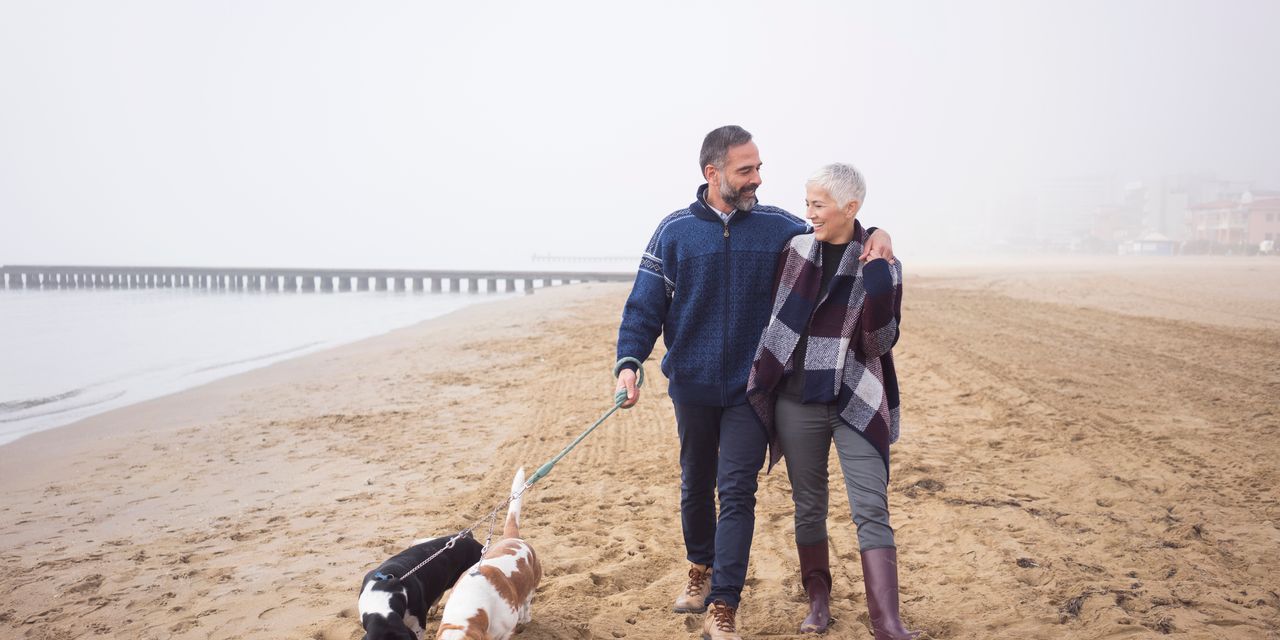There may not be a “magic pill,” but there are ways to stave off dementia and improve your brain health, one scientist says.
Crossword puzzles and Sudoku are helpful in stimulating the brain, but people also need to focus on their stress levels, sleep habits, nutrition and exercise — even if it’s just a brisk walk around the block a few times, said Marc Milstein, author of the new book “The Age-Proof Brain: New Strategies to Improve Memory, Protect Immunity and Fight Off Dementia” (published by BenBella Books). Milstein earned his Ph.D. in biological chemistry from UCLA, and has studied genetics, neuroscience, infectious disease and cancer biology.
In his book, Milstein breaks down the ways anyone can improve their memory and productivity, as well as “supercharge” the brain. These strategies may not only create healthier, happier lifestyles, but have the potential to fight off nongenetic cognitive illnesses, such as Alzheimer’s and other forms of dementia.
See: I had dementia for five minutes: here’s what I learned
Milstein spoke with MarketWatch about the misconceptions around brain health and simple ways to reduce the risks of developing dementia. This interview has been edited for clarity and length.
MarketWatch: What is the biggest misconception around brain health?
Marc Milstein: One is that it is out of our control and that it’s all genetics. It is not a magic pill or a fad diet, but it is about simple small practical things that can lower the risk of dementia.
MW: What are some ways to be proactive about brain health?
Milstein: What we realized is it’s not just what’s happening in the brain but how the brain reacts to the heart, gut, immune system, metabolism, diabetes…these are risk factors. If we think about optimizing our sleep, our stress management, our exercise and our diet — those four things go a really long way to protect the brain in the short-term and long-term.
Don’t miss: Dementia and Alzheimer’s disease: How to spot – and prevent – them
MW: What are super-agers, and what can we learn from them?
Milstein: Anyone from ages 70 and up, and what we see is this group of people have the memory and the brain — if you take a picture of their brain — that looks decades younger. Some people have the memories of 25-year-olds. Their secrets are essentially that they leverage all of the factors we were talking about. They take care of their sleep, they manage their stress, they optimize their diet, they exercise. They’re also really engaged. Beyond those four things are social interactions. The key message is it’s not just one thing.
MW: Can you talk a bit more about the connection between exercise and the brain?
Milstein: Exercise is as close as we have to a magic pill. It helps us sleep, it helps us balance our immune system, it helps manage stress, it helps us have a healthy heart — it covers so many factors.
The good news is: it’s not about marathons or triathlons. What we see in brain health is the benefit of simple things, like walking 30 minutes. It doesn’t have to be done at the same time. We also see when people walk, there are these fascinating studies of a pressure signal from the feet to legs to coordinate their heart and brain connection. You don’t have to power walk but faster walks show youthful brains. People can prioritize parking a little bit farther from the grocery store, getting off the subway a stop away, taking an early morning walk.
MW: Can you start these habits at any age to improve your brain health?
Milstein: The brain is adaptable. For people starting in their 60s and 70s, and incorporating things we’re talking about, they increase the processing speed of the brain by 150%. But the roots of things like dementia start decades before symptoms show up. We can do these things at whatever age we are now.
MW: What else do you think people should know about brain health?
Milstein: Another element is taking a moment to think of the environmental toxins in our food, our air and cleaning products. You don’t have to make massive changes but ask, what am I putting into my body? What sorts of products am I using? Make a conscious decision. I like to say we don’t have to make major changes — it’s the little things and being aware of how they can accumulate.
Also see: People who do this one thing every day have half the dementia risk that the rest of us do
MW: What’s one thing people can do right now to help themselves?
Milstein: First of all, feel optimistic about the aging process because believe it or not, there’s a study that shows people who have a favorable, optimistic feeling toward the aging process have a 48% lower risk of dementia. We now know things we can do. We’re not destined to lose our memory. Think of fun things — of social engagement, dancing, singing, playing sports, playing games. Things that get us active mentally and physically. Even in stressful times, set aside time and carve out time to do fun things. It sounds like a message that’s a little silly but these things are important.
The last thing, if you’re looking for one change, is in the morning go for a quick walk. Just 15 to 20 minutes. We know nature lowers stress levels, and walking lowers the risk of dementia, and we know morning light helps us sleep that night. When you wake up, before starting your day, take a quick walk around the block.
